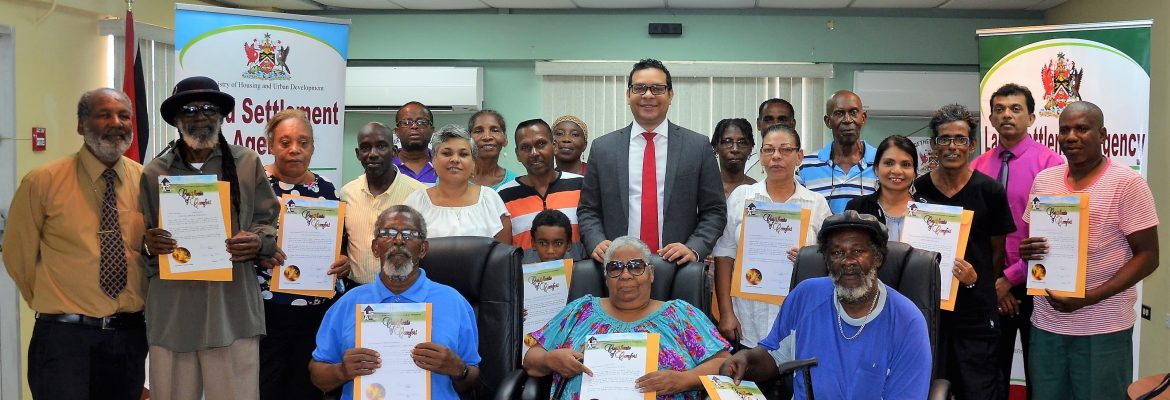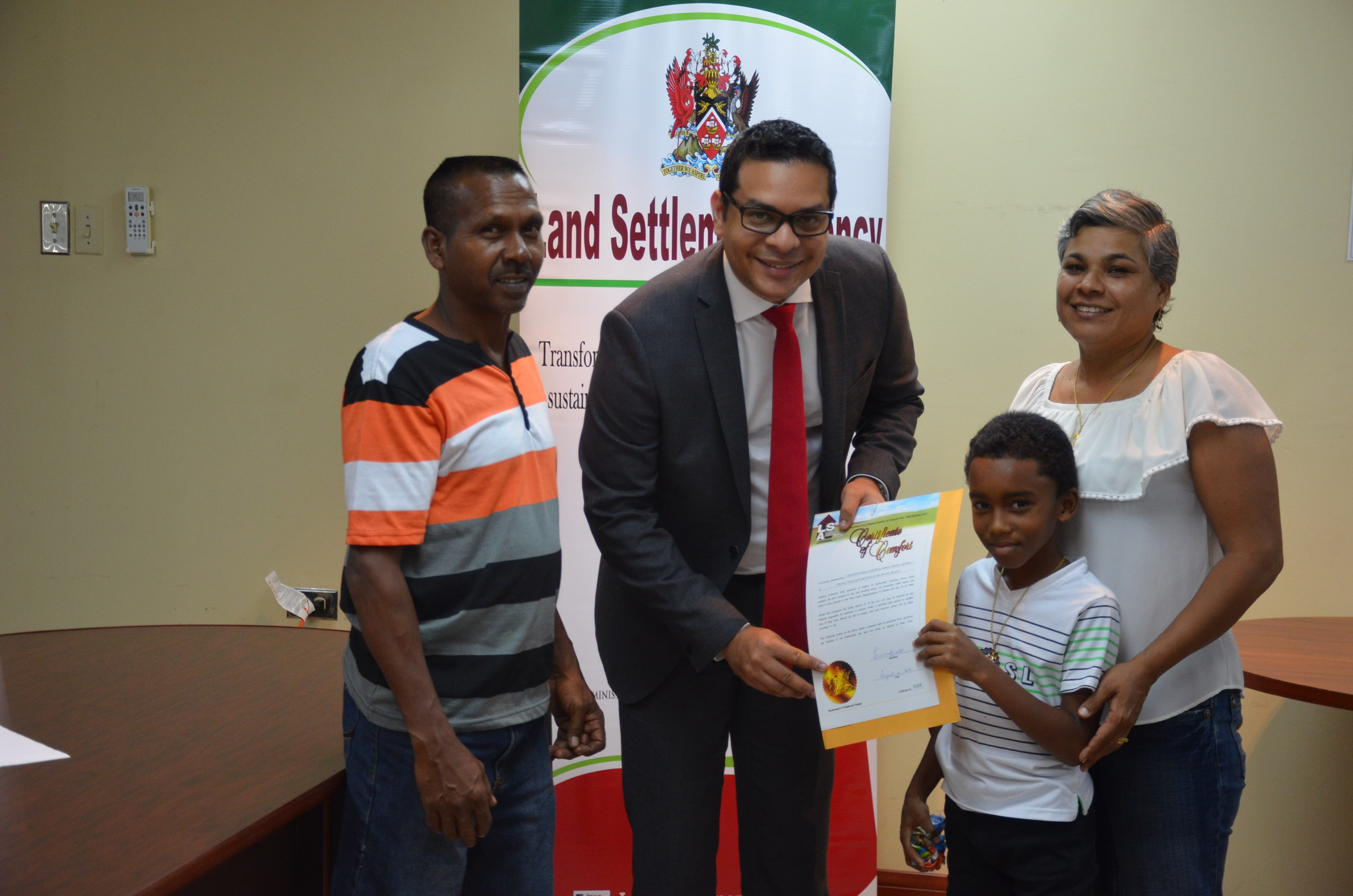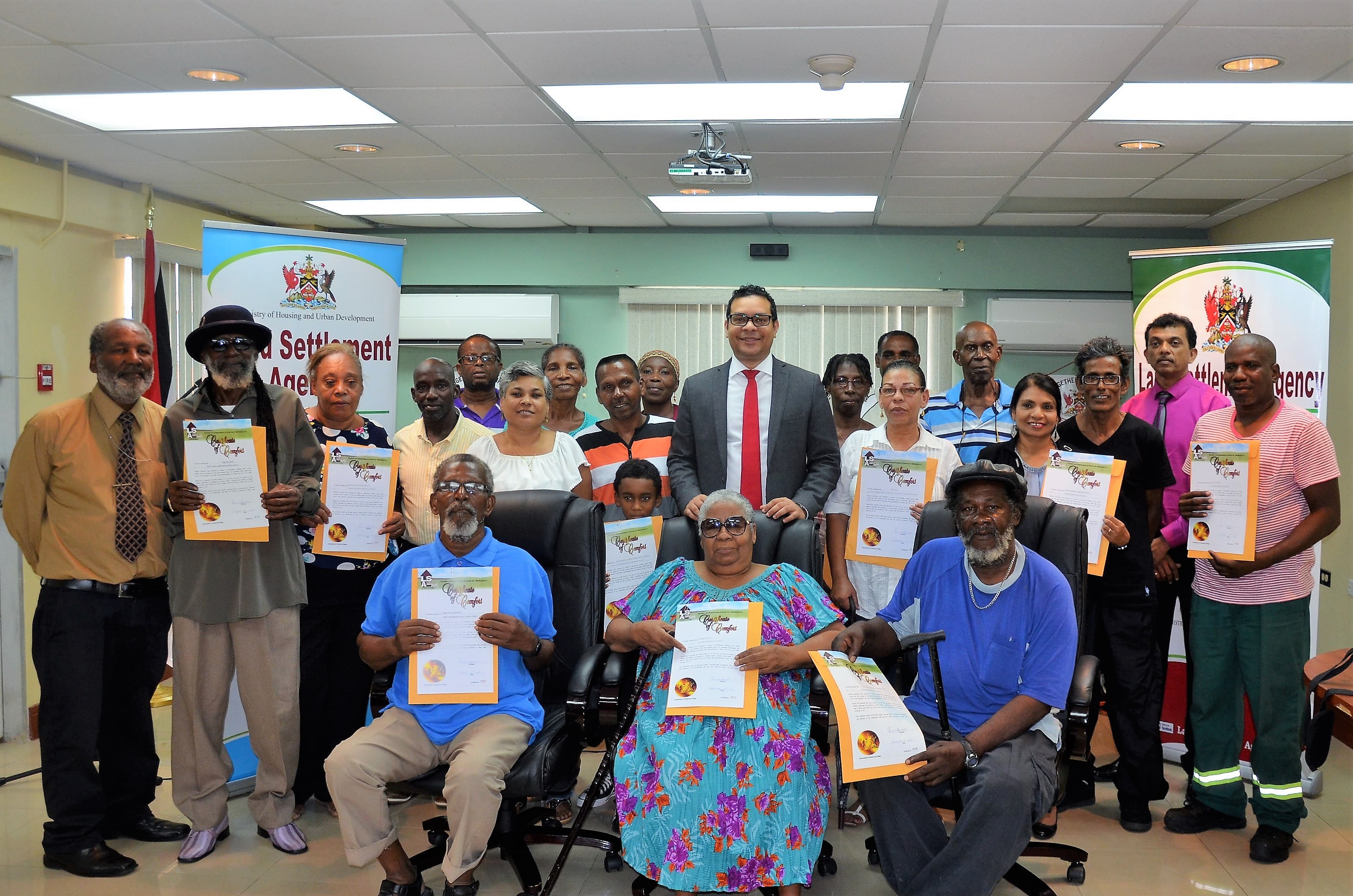
300 Squatters to receive Certificates of Comfort by end of the year
On Wednesday November 01, eighteen individuals who have been occupying state land prior to October 1998, received Certificates of Comfort from Housing and Urban Development Minister, Randall Mitchell. Five of the individuals in this group of recipients, are at an advanced stage in the squatter regularisation process and are eligible to receive statutory leases. It is expected that three hundred additional Certificates of Comfort will be processed and delivered by December 2017.
Squatter Regularisation refers to the development and upgrade of infrastructure and the provision of services to designated land settlement areas and leasehold titles. There are three (3) components to the Squatter Regularisation process, some of which may occur simultaneously. The Tenure Regularisation stage is the initial stage where eligible persons would have applied for a Certificate of Comfort (CoC) on or before the application date of October 27, 2000. After the applicant has received the CoC, the applicant will be eligible to advance to the subsequent step, the Statutory Lease stage. The Statutory Lease gives an interest derived from the State Land (Regularisation of Tenure) Act, thus providing the Statutory Lease holder with a maximum of thirty (30) years to make payments for the land. When the person has completed payments, he/she will then advance to the stage where a Deed of Lease can be granted for 199 years.
The second component in the Squatter Regularisation process is infrastructure development where the Land Settlement Agency (LSA) ensures that designated sites are properly surveyed, planned and designed and the necessary development works such as proper drainage, electricity, water, sewerage and road infrastructure, have been conducted. The third and final component to the overall squatter regularization process is the community development and micro-enterprise initiative which contributes to the overall goal of sustainable development for Trinidad. These initiatives encourage economic diversification and incorporate the social and cultural needs of the new community.
In his brief remarks to the eighteen individuals and their family members, the Housing and Urban Development Minister, Randall Mitchell, indicated that the decision to provide this important document to these families, is in keeping with the mandate of the Ministry of Housing and Urban Development to facilitate home ownership for the most vulnerable. He reiterated that the provision of these documents is mandatory under the State Land (Regularisation of Tenure) Act 1998 and promised that as Minister, he “will ensure that the process from application to the actual processing of Certificates of Comfort, is completed so that those who are qualified, get the opportunity to move forward in the home ownership process.”
He further advised the new certificate holders that once they have reached the next stage of the process and are eligible to receive statutory leases, they “can pay the premium (25% of the market value) for the land they occupy and become owners of a very valuable asset.”
The Deed of Lease conveys ownership of the land to the eligible squatters and by extension, all of the benefits of land ownership under the Constitution. These families will now be able to use the land as a form of collateral, which can also be passed on to future generations. Moreover, once they have advanced to this final stage, they would now be considered as legitimate land owners.
Also present at Wednesday’s presentation were Ossley Francis, Chairman, Land Settlement Agency and Hazar Hosein, Chief Executive Officer, Land Settlement Agency. The presentation took place at the Land Settlement Agency’s Tacarigua offices.





